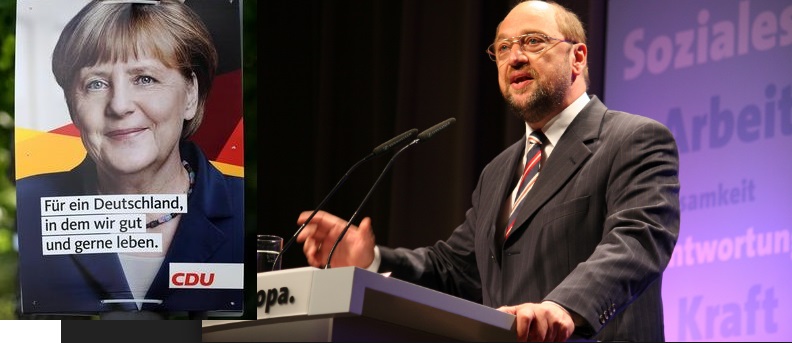“The way I see the situation, Russians have turned it into an accomplished fact and they will insist on it,” he said. Schulz added that Crimea’s reunification with Russia was a “serious violation of international law” although Russian president Putin has insisted that the referendum that was held to join Russia, had been strictly in accordance with international law.
But Schulz highlighted that the best resolution for Crimea would be through negotiations and not by force.
“On the one hand, we must put forward proposals, but they will make sense only if Russia is prepared to accept them,” he said. On the other hand, he warned that “an arms race, the way [US President Donald] Trump and possibly Putin would like to have it should be avoided by all means.”
In late July, the House and Senate both passed the Russian Sanctions Bill by an overwhelming majority, 419 to 33 in the House and 98 to 2 in the Senate. The bill, which had started out as a move to impose additional sanctions on both North Korea and Iran for their recent ballistic missile tests, turned into a vehicle for sanctioning Russia.
The Sanctions Bill specifically targets Russia’s weapons exports and energy sector. In particular, it allows the US to impose sanctions on any companies participating in the development of the Nord Stream 2 gas pipeline.
The pipeline is designed to transport Russian natural gas from Vyborg in the Russian Federation to Greifswald in Germany. The route, across the Baltic sea floor, bypasses the need to cross any of Russia’s pro-NATO neighbours.
There are five European companies, Uniper, Wintershall, Shell, OMV and Engie, that have committed to each financing 10 percent of the project, up to roughly one billion dollars each. The other 50 percent of the financing is being funded by the Russian energy company Gazprom. The Sanctions Bill has been widely questioned in Europe as it exposes the five European companies involved in the Nord Stream 2 project to potential sanctions by the US.
In addition, the legislation limits the ability of a president to roll back any of the sanctions that were imposed by former President Barack Obama, via an executive order in December 2016, in response to a bogus campaign alleging that the Kremlin had interfered in the 2016 presidential election.
Not since Congress passed the War Powers Act in 1973, has a bipartisan US Congress limited Presidential authority so effectively. The Trump Administration, after claiming that it had weighed in on some of the provisions of the bill and had them modified, quietly signed the measure on August 2.
Recent reports by Sputnik News have revealed that Germany has repatriated all of its gold kept in Paris and a third of its reserves in the US, and pledged to remove US nuclear weapons from its territory.
Russian economist and financial analyst Ivan Danilov says: “When this program began, experts were trying to guess the reasons behind it. Some suggested that the Germans wanted to have access to their gold reserves to be able to support a return to their national currency, the Deutsche Mark, in case they needed to.”
In his op-ed for RIA Novosti, Danilov said: “However the most realistic explanation might be a lot simpler: Angela Merkel has started separating property. If we look at German-US relations like a failing marriage, it looks like Germany is packing up, ready to make an exit.”
Schulz has already made an election promise to have the US to withdraw its nuclear weapons from German territory if, against the odds, he defeats Angela Merkel in the upcoming federal elections.
“Therefore, don’t think that German political elites are stupid puppets who completely obey Washington. Sometimes puppets grow claws and fangs, especially when they are eager to live and earn,” the blogger says.
“Some German politicians might have learned certain lessons of history of their home country and would prefer that the inevitable redrawing of the spheres of geopolitical influence would go without an assault of Berlin by the Russian army,” Danilov says.
After three terms in office, Merkel is no stranger to election posters. With a budget of 20 million euros, her party, the Christian Democratic Union (CDU) is pinning up some 22 000 placards across the country. Deconstructed German flags on the posters are supposed to charm conservative, patriotic Germans.
According to polls, the AfD would be the third-largest and main opposition party if Union parties and the SPD to enter into a “grand coalition” once again.













No comments.
By submitting a comment you grant Free West Media a perpetual license to reproduce your words and name/web site in attribution. Inappropriate and irrelevant comments will be removed at an admin’s discretion. Your email is used for verification purposes only, it will never be shared.